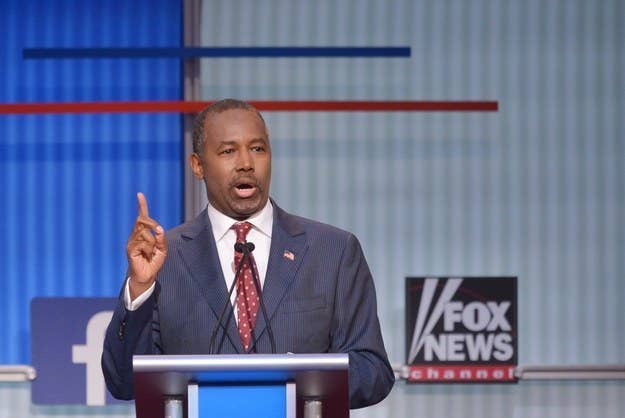
In 2007, Ben Carson suggested he wasn't opposed to hypothetically requiring people to buy health insurance like in the Scandinavian health care system — though he argued it would be "unreasonable" to do so then.
Carson was speaking during a 2007 meeting of the President's Council on Bioethics convened by George W. Bush:
PROF. GEORGE: If I could follow up with Ben, is a significant part of the problem regulations by various levels of government that result, by the law of unintended consequences, in unproductive uses of resources, and then, second and parallel to that, to what extent is the problem needing to meet the demands of insurers and the overall insurance system? I'm wondering to what extent the problems are there and not actually in the institutions just as such themselves.DR. CARSON: Well, you're hitting at the crux of the matter here, because — and, again, I'll keep harping on the same topic, because — a good healthcare provider and a patient — and what we've done is we've insinuated all of these regulators into that relationship with the proclamation that they have a much better and saner approach to health care than your physician would have. And I think there's the rub. And what we really, in my opinion, should be looking for are ways to reduce the cost — and it comes back down to a cost issue when it comes to access — reduce the cost to a level where people can afford their own health care. And then, very much like they do in Scandinavia, it would not then be unreasonable to require that people own healthcare insurance. It is unreasonable at this stage, because the cost is way over-inflated. It doesn't need to be anywhere near that high if we get these unnecessary entities out of the way. And I do believe that those interfere. The desire of hospitals now, the desire of physicians to get an A from all of these regulators, so that they can be "the good people and the best people"—this is ridiculous, and this doesn't have anything to do with good health care. People will know themselves when they're getting good health care. And market forces will lead them to people who provide that good health care if we remove all the impediments from the way.
The individual mandate concept — the idea of requiring people to buy health insurance — gained traction first in the 1990s when the Heritage Foundation, a conservative think tank, advocated for it. As governor of Massachusetts in 2006 — the year before Carson's remark — Mitt Romney later signed into law a health care law that included a mandate.
In recent years, Republicans have widely criticized the individual mandate, which in the case of Obamacare, requires individuals to purchase health insurance or face a tax penalty. Carson once infamously called Obamacare "the worst thing that has happened in this nation since slavery."
In another Council meeting earlier that year, Carson suggested that "if everybody owned their own health insurance, there are some real possibilities here" for using premium prices to incentivize healthy behavior.
"For instance, if they become a lion tamer, their rate goes up. You know, if they're going to climb mountains, Mount Everest, on a regular basis, their rate goes up," Carson said. "Why should everybody else have to be responsible for somebody who clearly is going to be pushing the button? If they're going to be riding a motorcycle without a helmet, their rates go up."
Carson also suggested that the mechanism could be used to disincentivize obesity.
"We don't necessarily have to hold that person responsible for being fat," Carson suggested. "But if we say, 'Your premium goes up because you weigh 400 pounds, sorry,' they're going to start thinking about it."
A Carson spokesman said he would not respond to specific quotes, saying Carson was used talking about ways to make health care more affordable.
"I'm not going to respond to any of these specific quotes as, in general, it is clear he was not speaking of a specific health care policy but musing about tactics and solutions to make health care more affordable and accessible," the spokesperson said.
"Today, Dr. Carson advocates a health care system based on cradle to grave health savings accounts, an affordable high quality approach to health care that minimizes government and insurance company interference between the patient and their health care provider."
